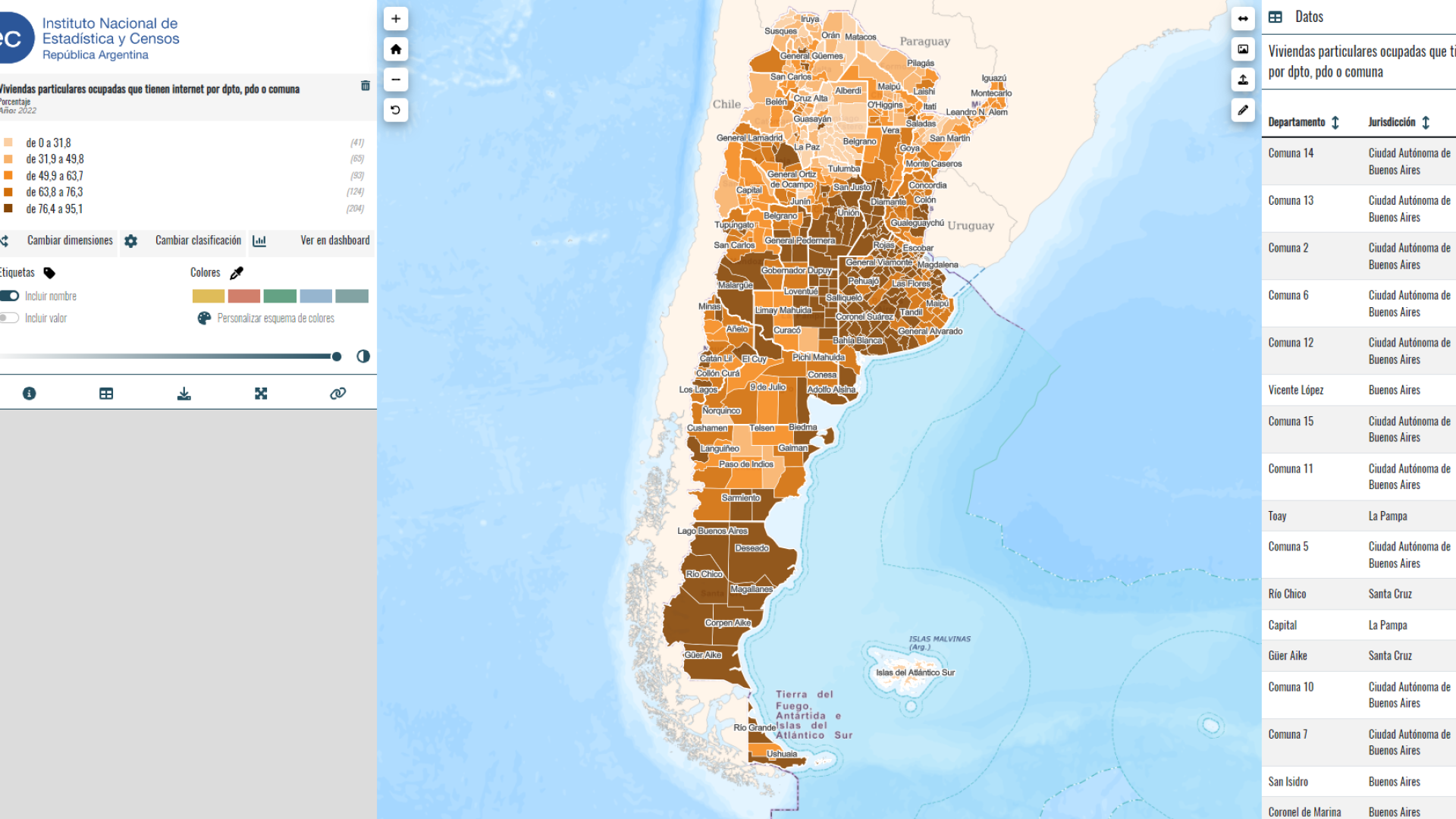Briefing note
Big data analytics can improve decision-making in critical areas for development, such as health, employment, productivity, security and natural disaster management, to name a few, but for this to happen new alliances must be forged between all actors involved and true educational and cultural revolutions must take place, according to the specialists gathered at a seminar held on 6 March at ECLAC’s headquarters in Santiago, Chile.
“One of our region’s main challenges is establishing a true dialogue between national statistics offices and the most important big data actors, who are mostly private,” the Executive Secretary of the Economic Commission for Latin America and the Caribbean (ECLAC), Alicia Bárcena, said at the inauguration of the seminar Think Big: Data innovation in Latin America and the Caribbean, organized jointly with the MIT Sloan School of Management’s Latin America Office and the Brazil-based Regional Center for Studies on the Development of the Information Society (CETIC.br).
During the gathering, ECLAC officially launched the project “Big data for measuring and fostering the digital economy in Latin America and the Caribbean,” financed by the United Nations Development Account (UNDA), which seeks to improve national capabilities for measuring the digital economy and designing evidence-based policies, by combining big data analytics with traditional statistical techniques.
“Latin America and the Caribbean has shown much progress in the Internet of consumption but not in the Internet of production,” Alicia Bárcena emphasized during her presentation.
Other participants in the event’s inauguration included Rodrigo Ramírez, Chile’s Telecommunications Undersecretary; Alexandre Barbosa, Head of CETIC.br; Roberto Rigobon, Society of Sloan Fellows Professor of Management and Professor of Applied Economics at MIT Sloan School of Management; and Mario Cimoli, Director of ECLAC’s Division of Production, Productivity and Management.
Keynote speeches were given by Robert Kirkpatrick, Director of UN Global Pulse, and Emmanuel Letouzé, Director of Data-Pop Alliance. Other speakers included Chilean Economy Minister Luis Felipe Céspedes and Marcelo Jenkins, Costa Rica’s Minister of Science, Technology and Telecommunications.
Rodrigo Ramírez stressed that “in emergency contexts, such as those Chile is accustomed to facing on a permanent basis, the world of big data management becomes a crucial matter, including for saving lives.” He also underlined the importance of creating a regional digital market that can harness the digital potential of Latin America and the Caribbean.
Alexandre Barbosa, meanwhile, indicated that “measurement plays a central role in the international agenda on sustainable development” and that bodies such as ECLAC can play a very important role in promoting debate and reflecting upon the new tools needed to monitor country progress on compliance with the Sustainable Development Goals (SDGs).
Roberto Rigobon, of MIT, also valued the leadership shown by ECLAC in studying issues related to the information society in Latin America and the Caribbean. According to him, taking advantage of big data implies true revolutions in both educational and cultural arenas, and so he called on national statistics offices and universities to modernize and not let the opportunity to participate in this process pass them by.
The presentations by Robert Kirkpatrick, Director of Global Pulse – which is a United Nations initiative – and by Emmanuel Letouzé, Director of Data-Pop Alliance (a coalition formed by the Harvard Humanitarian Initiative, MIT Media Lab, Overseas Development Institute and Flowminder Foundation), offered an overview of big data use in the world, its potential benefits and risks, as well as opportunities for collaboration.
Robert Kirkpatrick pointed to several existing challenges regarding big data analytics, warning of the ethical responsibility that its use requires and of data access problems. In that respect, he stressed the need to establish multi-sectoral alliances and strengthen public-private cooperation. Emmanuel Letouzé focused, meanwhile, on the way in which big data can drive democracy and sustainable development in the region.
At the seminar’s closing panel, Mario Cimoli called on countries to use digital technologies as a tool for implementing public policies, but he warned that the challenge of shifting to knowledge- and information-based productive models remains. He sustained that there are pending issues regarding the industrial revolution and that governance is still needed for the new model stemming from digital platforms.
Another participant in the event was Frauke Kreuter, a Professor at the Maryland Population Research Center, who reviewed current strategies for strengthening national statistics offices’ capabilities through cooperation agreements with universities in the United States and Europe.
Finally, Antonino Virgillito, Senior IT Engineer from the Italian National Institute of Statistics (ISTAT), presented the projects that ISTAT is leading in the area of big data analytics, which include the production of price indexes and the exploration of ICT indicators in companies.



